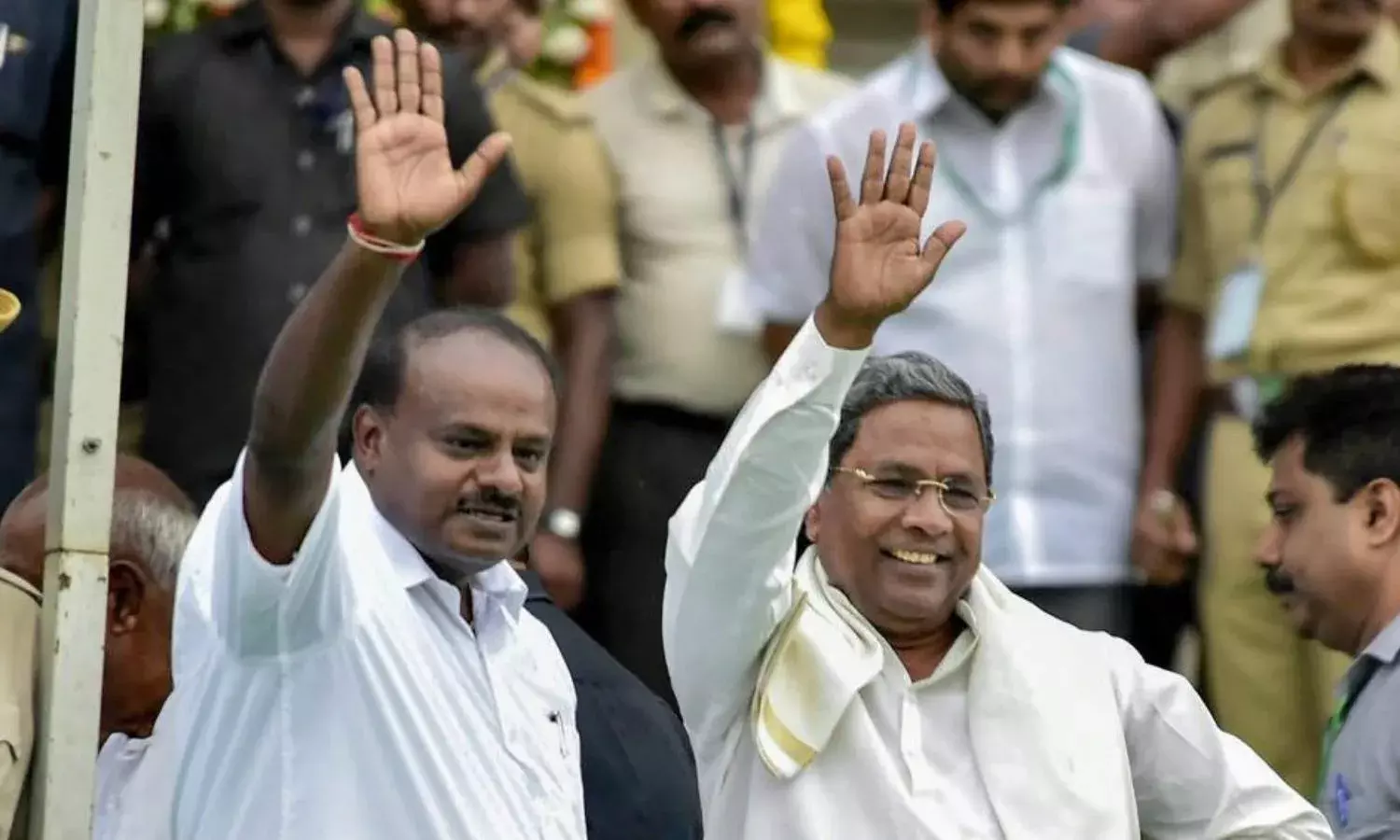Message in Karnataka Bypoll Upheaval: Get Together Opposition!
JD(S)-Congress win 4 of 5 bypolls

Karnataka remained isolated from the Sabarimala temple frenzy generated by the Bharatiya Janata Party in neighbouring Kerala, and voted massively in favour of the Janata Dal (Secular) – Congress coalition in four of the five important byelections held in the state recently. The BJP managed to retain the Shimoga parliamentary constitutency, with the coalition winning Bellary – in what is seen as a major upset for the BJP – along with the Mandya Lok Sabha seat.
The JD(S)–Congress also won the two assembly byelections in Jamkhandi and Ramanagara. Former Chief Minister Siddaramaiah described it as a 'Diwali gift' from voters, with the alliance leaders jubilant about the results. More so as there had been worry about the possible impact of the temple controversy on the voters, as well as the efforts by the BJP to polarise voters in Karnataka.
The results come as a major boost for coalition politics. Despite differences the JD(S) and Congress have held together in Karnataka, with the results making it clear that the people are looking for a change in the Lok Sabha as well. And are worried about development over and above the politics of religion.
The takeaways for the alliance are clearly that:
1. Coalition politics works for voters. As JD(S) leader Danish Ali told The Citizen, it is very clear that the people want likeminded opposition parties to come together and have through these bypolls put their stamp on the politics of coalitions.
2. Communal polarisation is not working for the BJP as the people want development, jobs, progress.
The Karnataka elections were viewed by the political parties as the first test in the run up to the parliamentary polls next year. Both the BJP and leaders of the coalition had referred to the bypolls in their speeches and at press conferences as a referendum for the alliance and for the respective agendas. The coalition steered away from the politics of communalism, with the candidates focusing instead on jobs, development and corruption.
As a result it won four of the five bypolls with huge margins, exceeding one lakh and going on to almost three lakhs, in an overwhelming vote in favour of the coalition that has enthused both the Congress and the JD(S).
Significantly Bellary, which was seen as the litmus test for the campaign against corruption, voted for the Congress candidate and troubleshooter DK Shivakumar who was key in patching up the alliance for the Lok Sabha polls. As Shivakumar said, 'The democratic process, the people's mandate is very important. It gives a direction to the people of this country. As far as south India is concerned, the Ram temple cannot be a political plank.' This is clear from the victory of the coalition despite the BJP's focus on a polarised agenda.
The Bellary Lok Sabha seat was a Congress stronghold which Sonia Gandhi had also managed to win after a tough battle with the BJP’s Sushma Swaraj. The BJP wrested the seat back from the Congress in 2004, and has now lost it yet again in what is clearly a shock defeat.
But the main message from Karnataka is that coalition works. And as Danish Ali said, voters have made it clear that they want the opposition parties to come together by busting the myth that the votes of one cannot be transferred to the other. The margins of victory in these bypolls prove that votes were transferred to the coalition by supporters of the parties in it.
The results are expected to boost the opposition alliance for 2019, with Telugu Desam leader Chandrababu Naidu having already approached the Congress and the regional parties to stress the urgency to get their act together for the approaching Lok Sabha polls.
Karnataka is seen as a trendsetter and a heralder of change. It gave birth to the Janata Dal under V.P. Singh; it then brought in Deve Gowda as prime minister; and long before this it saw the rebirth of Indira Gandhi, vanquished after the Emergency, with a glorious win from Chikmagalur.
Today's results are perhaps a message from Karnataka to the opposition to come together at the national level.



